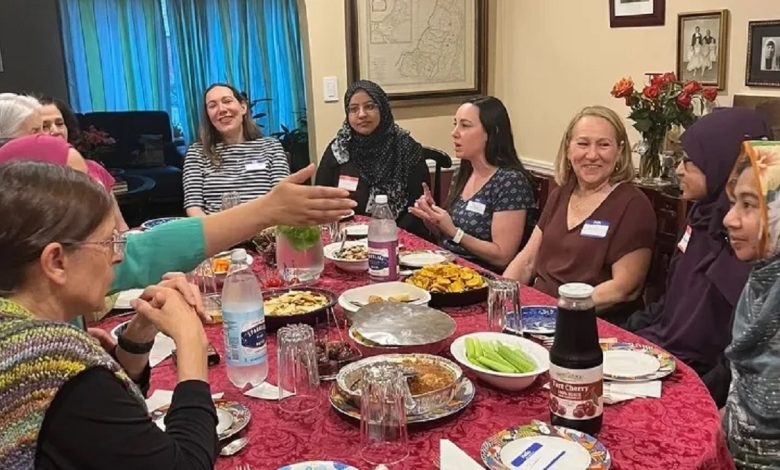Building Bridges in Queens: Jewish and Muslim Neighbors Unite for Peaceful Dialogue
In Jackson Heights, a grassroots interfaith gathering fosters understanding, empathy, and shared humanity amid global tensions.

In the vibrant and diverse borough of Queens, a recent initiative sought to strengthen meaningful dialogue and mutual understanding between Jewish and Muslim communities. Held against a backdrop of global challenges, the event aimed to bridge divides and build local connections, emphasizing shared humanity above political strife. It created a unique space for residents to engage in peaceful conversations and exchange ideas during an important holiday season.
Jackson Heights in Queens proudly stands as one of the most diverse neighborhoods in the country—a melting pot of cultures and religions. Yet despite this rich tapestry, residents often find themselves with limited direct interaction across religious lines.
Dan Fleischer, a Jewish resident, candidly acknowledged this reality, noting that his interactions with Muslim neighbors were mostly casual and infrequent outside of community events. This recognition reflected a shared desire for deeper community engagement.
Faiths Unite Under One Roof in Queens
To address this, Fleischer attended a special Jewish–Muslim gathering titled “Finding Shelter in One Another.” The event, embodying the multicultural spirit of Jackson Heights, took place in the peaceful garden of St. Mark’s Church, an Episcopal space that provided a neutral and welcoming environment for all. It was organized by Malkhut, a progressive Jewish community founded a decade ago and dedicated to fostering intergenerational connection in western Queens. A symbolic highlight of the event was its setting inside Malkhut’s Sukkah—a temporary outdoor structure traditionally built for the Jewish festival of Sukkot—adding cultural depth to the interfaith dialogue.
The inspiration behind this unique gathering came from the strong friendship between Rabbi Rachel Goldenberg, founder of Malkhut, and Imam Shamsi Ali, the respected director of the Jamaica Muslim Center in Queens. Rabbi Goldenberg reflected on the historical and emotional complexities surrounding Jewish-Muslim relations, noting that external forces often discourage such connections. She emphasized that since October 7, 2023, and the ensuing humanitarian crisis in Gaza, these moments of dialogue have become even more essential to foster empathy and solidarity.
Participants enjoyed an afternoon filled with light snacks, tea, and sweets from a local Indian shop, creating a celebratory atmosphere. The core of the event involved small group discussions centered on Jewish and Islamic texts, encouraging participants to explore common values and learn from one another’s perspectives in a respectful and structured setting.
Imam Ali acknowledged the continuing complexities in the Middle East and the universal desire for justice but stressed the importance of distinguishing between the pursuit of justice and the spread of hatred. He noted that some within the community questioned the value of symbolic interfaith meetings, arguing that activism should take precedence.
Yet he passionately affirmed that “justice does not mean hating others,” emphasizing the need to transcend immediate political conflicts and recognize shared humanity. He expressed hope for a future peace agreement between the warring sides, viewing such local initiatives as essential steps toward broader understanding.
For Dan Fleischer, the gathering was an extension of his personal activism. As a member of Malkhut and other Jewish groups that advocate for Palestinian rights, he recognized that resolving complex political and religious tensions requires foundational steps. He believes genuine dialogue cannot occur without personal connections and mutual recognition as human beings. This event, therefore, marked a meaningful milestone on a longer journey toward deep conversations and lasting peace.
Ultimately, this initiative in Queens stands as powerful proof that even amid global turmoil, local communities can create sanctuaries for dialogue and mutual respect. By focusing on shared experiences and fostering personal relationships, residents are actively building bridges—demonstrating that understanding and peace can indeed begin at home, one conversation at a time. These efforts are not merely symbolic gestures but essential building blocks for a more compassionate and cohesive society, reinforcing the belief that unity is possible through sustained engagement and shared humanity.



